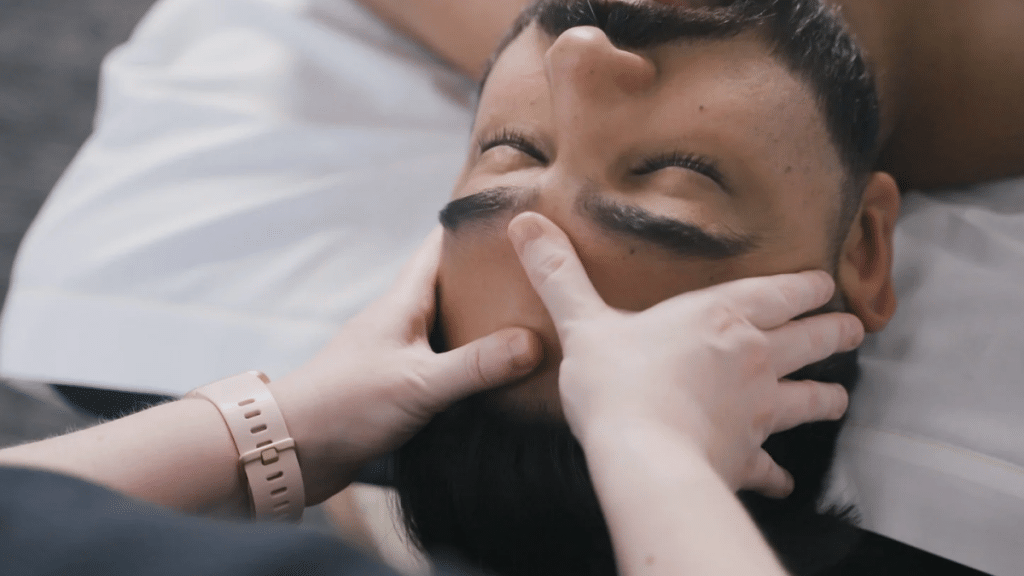Stress and anxiety have become familiar companions in today’s fast-forward world. The constant pressure to perform, coupled with the challenges of daily life, can take a toll on our mental well-being. However, amidst this whirlwind of responsibilities, massage therapy is a powerful ally, offering a sanctuary for mind, body, and soul. This ancient practice has long been recognized for its physical and emotional benefits, but its impact on mental health is equally profound. Here we’ll explore the numerous benefits if massage for mental health, providing a haven of tranquility and rejuvenation.
Stress Relief and Relaxation
One of the most well-known benefits of massage therapy is its ability to alleviate stress, anxiety and depression and promote relaxation. The gentle yet purposeful strokes and kneading techniques employed by skilled therapists trigger the release of endorphins, the body’s natural feel-good chemicals. These endorphins act as natural painkillers and mood elevators, helping to reduce feelings of anxiety and tension. Moreover, massage therapy has been shown to lower cortisol levels, the hormone associated with stress, allowing the mind and body to achieve a state of profound relaxation. This respite from the relentless demands of daily life can be invaluable, providing a much-needed opportunity to recharge and reset.
Improved Sleep Quality
Sleep plays a crucial role in maintaining mental health, yet many individuals struggle with insomnia or poor sleep quality. Massage therapy can be a powerful aid in improving sleep patterns. Massage can reduce stress levels, promote relaxation, calm the mind, and prepare the body for restful slumber. Additionally, the increased circulation and muscle relaxation resulting from massage can alleviate physical discomfort, further enhancing the likelihood of uninterrupted, restorative sleep. Waking up refreshed and rejuvenated can profoundly impact mental clarity, emotional regulation, and overall well-being.
Boosted Mood and Emotional Well-being
Beyond its physical benefits, massage therapy has a profound impact on emotional well-being. Massage therapists, their therapeutic touch and dedicated attention provided during a massage session can foster a sense of connection and comfort, contributing to an overall improved mood. Furthermore, the release of endorphins, increasing serotonin levels and the reduction of stress hormones can help alleviate symptoms of depression and anxiety, promoting a more positive outlook on life. This emotional uplift can be particularly beneficial for individuals struggling with mental health challenges, providing a respite from negative thought patterns and encouraging a more optimistic perspective.
Increased Self-Awareness and Mindfulness
Massage therapy encourages individuals to tune in to their bodies and become more aware of their physical and emotional states. This heightened self-awareness can lead to greater mindfulness, allowing individuals to better recognize and address their needs. By creating a space for relaxation and introspection, massage therapy provides an opportunity to quiet the mind and cultivate a sense of presence and acceptance. As individuals become more attuned to their inner selves, they may find it easier to navigate the complexities of life with greater resilience and wisdom.
Chronic Pain Management
Chronic pain can have a significant impact on mental health, often leading to feelings of frustration, anxiety, and depression. Massage therapy has been shown to be an effective complementary therapy for managing chronic pain conditions such as fibromyalgia, arthritis, and lower back pain. By reducing muscle tension, increasing circulation, and promoting relaxation, massage can provide relief from physical discomfort, which in turn can alleviate the psychological strain associated with chronic pain. This holistic approach addresses both the physical and mental aspects of pain, fostering a sense of empowerment and improved quality of life.
Enhanced Immunity and Overall Well-being
Massage therapy’s benefits extend beyond the realm of mental health, positively impacting overall well-being. By stimulating the lymphatic system and improving circulation, massage can boost the body’s immune function, helping to ward off illness and promote a sense of vitality. Additionally, the relaxation and stress relief provided by massage therapy can have a cascading effect on various bodily systems, contributing to improved digestion, better respiratory function, and enhanced overall health. This synergistic effect reinforces the mind-body connection, underscoring the importance of holistic self-care practices.
Conclusion
In our quest for mental well-being, massage therapy emerges as a powerful ally, offering a holistic approach to nurturing the mind, body, and spirit. From alleviating stress and improving sleep quality to boosting mood and promoting mindfulness, the benefits of massage therapy for mental health are far-reaching and profound. By incorporating regular massage sessions into your self-care routine, you can create a sanctuary of tranquility amidst the chaos of daily life, fostering a greater sense of balance, resilience, and overall well-being.
Massage therapy not only addresses the physical manifestations of stress and tension but also provides a safe space for emotional release and self-exploration. As you surrender to the healing hands of a skilled therapist, you may find yourself letting go of the mental burdens that weigh you down, allowing for a renewed sense of clarity and inner peace.
